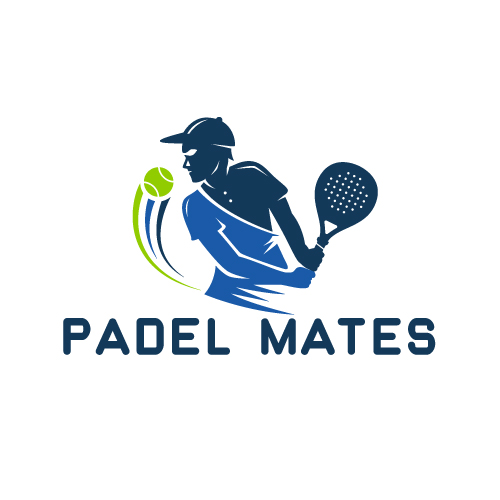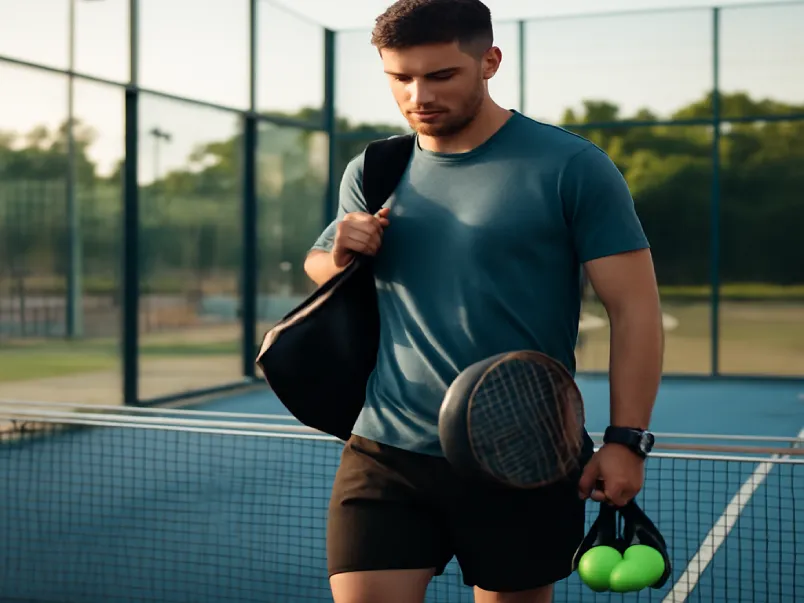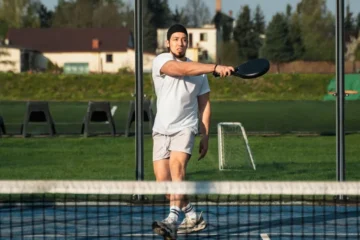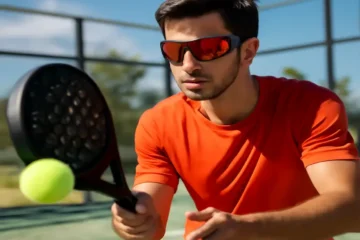The Grind Behind the Glory
The sound of an alarm blaring before dawn breaks the silence of a quiet morning. Lifting a tired body from the comfort of sleep, a pro padel player embarks on another grueling day that will push both body and mind to the limits. While the world may see the victory, the celebrations, and the trophies, few understand the daily grind that fuels a successful career in professional padel.
Take Juan García, currently ranked 5th in the world and fresh off a remarkable victory in the prestigious World Padel Tour (WPT) Madrid Open. To an outsider, his life might seem like a series of glamorous events – high-flying tournaments, celebrity meetings, and a constant stream of applause. However, the reality is vastly different. A pro’s day is far from just hitting balls on the court; it’s about dedication, discipline, and an unrelenting pursuit of improvement.
This article takes a deeper look at the intricate daily schedule of a professional padel player, shedding light on the sacrifices, structure, and hustle that shape their extraordinary performances. From dawn to dusk, their day is carefully balanced between rigorous physical training, mental preparation, and crucial recovery.
I. The Early Morning: Foundation & Fuel (6:00 AM – 9:00 AM)
The Wake-Up Call: Setting the Tone for the Day
The day starts early for a pro padel player. At 6:00 AM, Juan gets out of bed, not because the alarm tells him to, but because his body and mind are attuned to the rigorous demands of his profession. Before reaching for the phone or checking social media, the first priority is hydration. The body, dehydrated from hours of sleep, needs to replenish fluids to kick-start the metabolism. A glass of water infused with electrolytes is often the first step.
He then spends 5-10 minutes meditating or performing breathing exercises to mentally prepare for the challenges ahead. This brief, mindful session is an essential part of his morning ritual. It helps center his mind, reduce stress, and set positive intentions for the day. In a sport where split-second decisions are crucial, mental clarity is just as important as physical fitness.
Breakfast of a Champion
By 6:30 AM, Juan prepares a hearty breakfast, carefully selecting foods that fuel his body for the intense day ahead. His typical breakfast includes oatmeal, eggs, avocado, and a nutrient-packed smoothie. The oatmeal provides slow-release carbs for sustained energy, while eggs offer high-quality protein for muscle recovery. Avocado brings healthy fats, which are crucial for joint health and inflammation control. The smoothie, often made with greens, protein powder, and fruits, is a powerful antioxidant-packed drink that helps keep his immune system strong.
Nutrition is a critical part of a padel player’s routine. Every meal is designed with a specific goal in mind: to support training, optimize recovery, and enhance performance. Juan’s approach to food isn’t about restriction but about fueling his body to be at its best every day.
The First Mobility Session
By 7:30 AM, it’s time for the first mobility session. Light stretching, dynamic warm-ups, or a brief yoga session help loosen tight muscles and prepare the body for the strenuous activities that will follow. This part of the routine is key to injury prevention, ensuring his muscles, joints, and tendons are flexible and ready to handle the quick, explosive movements required during training and matches.
II. Morning Session: Sharpening the Weapon (9:00 AM – 12:00 PM)
On-Court Technical Training (9:00 AM – 11:30 AM)
At 9:00 AM, Juan heads to the padel courts for his first major training session of the day. This is where the real technical work happens. On-court drills, typically lasting around 2-2.5 hours, focus on refining specific skills. Today, the session might be dedicated to improving wall play, volleys, bandejas, viboras, or his smashes. Each session is structured with specific drills aimed at improving different aspects of his game. He works closely with his coach, ensuring every movement is deliberate and intentional.
The philosophy behind this session is rooted in the principle of “quality over quantity.” Juan isn’t on the court for hours just to accumulate time; he’s there to practice with focus, precision, and purpose. Each shot, each movement, is executed with attention to detail. This level of deliberate practice is what separates the elite from the average.
Physical Conditioning: Strength & Agility (11:30 AM – 12:00 PM)
After the on-court session, it’s time for physical conditioning. Padel requires strength, agility, and endurance, which is why strength and conditioning are crucial parts of the training regime. For Juan, his post-court workout typically includes plyometric exercises, rotational core work, and lateral movements—all geared towards enhancing his performance on the court. These exercises not only improve power and speed but also enhance agility, which is key in a sport that demands quick reactions and explosive movements.
Juan’s strength and conditioning coach plays an integral role in customizing workouts that complement his specific needs as a padel player. This highly personalized approach is essential for optimizing performance while minimizing the risk of injuries.
III. Midday: The Art of Recovery (12:00 PM – 3:00 PM)
Lunch & Refueling
By noon, Juan is ready for a well-earned lunch. A plate of grilled chicken or fish paired with a quinoa salad, steamed vegetables, and a side of healthy fats like olive oil or nuts is the go-to meal. Post-training meals are designed to replenish glycogen stores, repair muscle tissue, and support energy levels for the afternoon session. Protein and complex carbohydrates are the key elements of his recovery diet.
The Non-Negotiable Nap
After lunch, Juan takes a nap. It may seem like a luxury, but rest is an essential part of recovery. The body needs time to repair muscles, reduce fatigue, and prepare for the next round of physical exertion. This 60-90 minute nap is non-negotiable. It allows him to recharge mentally and physically, ensuring he’s ready for the tactical and strategic work in the afternoon.
Active Recovery
Post-nap, Juan engages in active recovery. This could include foam rolling to release muscle tension, a light walk to keep the blood flowing, or even cryotherapy to reduce inflammation. These recovery techniques are crucial to ensure his body is in top condition, ready for another round of intense training.
IV. Afternoon Session: Strategy & Point Play (3:00 PM – 6:00 PM)
Tactical On-Court Work
By 3:00 PM, Juan is back on the court, this time for tactical and strategic work. The focus is on match simulation and point construction. Working with different training partners, Juan practices how to build points and adjust his strategy based on an opponent’s style. This session is all about applying the technical skills learned in the morning session to real match scenarios.
Video analysis also plays a crucial role here. Juan reviews his past matches, analyzing both his own performance and that of his opponents. This review process helps him spot areas for improvement, whether it’s adjusting his positioning, perfecting a shot, or tweaking his strategy.
Mental Conditioning
In addition to physical training, Juan works with a sports psychologist to fine-tune his mental game. Visualization techniques, managing pressure, and maintaining focus are part of his regular mental conditioning sessions. Padel, like all sports, is just as much a mental game as it is a physical one. Juan understands the importance of staying calm under pressure, staying focused during long rallies, and maintaining confidence even in the face of setbacks.
V. The Evening: Winding Down and Switching Off (6:00 PM – 10:00 PM)
Dinner & Nutrition
By 6:00 PM, it’s time for dinner. Unlike the larger lunch, dinner is lighter but still packed with the right nutrients. Grilled salmon with a side of leafy greens, sweet potato, and a light salad ensures Juan receives the nutrients he needs for overnight recovery without overloading his digestive system.
Unwinding Rituals
After a full day of training, Juan needs time to unwind. He might read a book, spend quality time with family, or watch his favorite series on Netflix. These unwinding rituals are important for maintaining a healthy work-life balance and preventing mental burnout. It’s essential for top athletes to have time away from the sport to recharge mentally.
Preparation for Tomorrow
As the day winds down, Juan reviews his schedule for the next day. He checks his training plans, packs his gear, and prepares meals for the next 24 hours. These small but essential tasks ensure a smooth start the next morning, allowing him to focus on what matters most: performance.
The Wind-Down: Final Routine
Before bed, Juan has a final routine. No screens, no blue light. He does light stretching and perhaps some meditation to ensure his body is relaxed and ready for sleep. Sleep is a vital component of his recovery process, as this is when his muscles repair, his body rejuvenates, and his mind rests.
The Pillars of Performance: A Deeper Dive
Nutrition Philosophy
Juan’s approach to nutrition is simple yet strategic: eat to fuel, recover, and perform. He follows a balanced diet rich in whole foods, avoiding processed sugars and unnecessary fats. Cheat meals are rare but enjoyed in moderation. Hydration is a constant priority, ensuring he remains at his best both physically and mentally.
The Support Team
Behind every pro player is a team. Juan credits his coach, physio, nutritionist, and family for being instrumental in his success. Their support is invaluable, ensuring that he has the right guidance, care, and emotional support needed to maintain his career.
The Mental Game
The mental game is just as important as the physical one. Juan emphasizes the value of resilience, maintaining focus during tough moments, and using setbacks as learning opportunities. His advice to aspiring athletes is clear: “Discipline is key. Stick to the process and enjoy the journey, not just the wins.”
Travel & Tournaments
During competition weeks, this routine adapts. Travel, jet lag, and the pressure of upcoming matches alter the daily schedule. But the essentials—training, recovery, nutrition, and mental conditioning—remain constant.
Conclusion: More Than a Routine, It’s a Lifestyle
Excellence in padel is a 24/7 commitment. For Juan, this lifestyle isn’t a burden—it’s a passion. From early mornings to late nights, every moment is crafted with precision to ensure the best performance on the court. His dedication serves as an inspiration to aspiring athletes everywhere: it’s not just about the victories, but about embracing the daily grind, discipline, and process.
FAQs
1. What does a typical day look like for a pro padel player?
A typical day for a pro padel player involves a carefully structured schedule that includes early morning hydration, mobility sessions, on-court technical training, physical conditioning, recovery, and mental preparation. They balance intense physical exertion with strategic on-court work and recovery techniques to ensure optimal performance.
2. How important is recovery in a padel player’s routine?
Recovery is crucial for a padel player’s performance. After intense training sessions, players focus on activities such as active recovery, naps, and post-training meals rich in protein and carbs to repair muscles. Techniques like foam rolling and cryotherapy are also used to prevent injuries and maintain overall physical health.
3. What kind of nutrition do pro padel players follow?
Professional padel players focus on a nutrient-rich diet that supports their intense training regimen. They prioritize complex carbs for energy, lean proteins for muscle recovery, and healthy fats for joint health. Meals are carefully planned to fuel their body before training and aid in muscle recovery afterward.
4. How does mental conditioning play a role in a pro’s daily routine?
Mental conditioning is just as important as physical training. Pro padel players work with sports psychologists to improve focus, manage pressure, and visualize success. Techniques such as mindfulness, visualization, and relaxation exercises help them maintain mental clarity during matches.
5. How do pro padel players prepare for tournaments?
During tournament weeks, the routine adapts to accommodate travel, match preparation, and adjusting to new time zones. However, the focus on training, recovery, and nutrition remains constant to ensure peak performance during competition.




